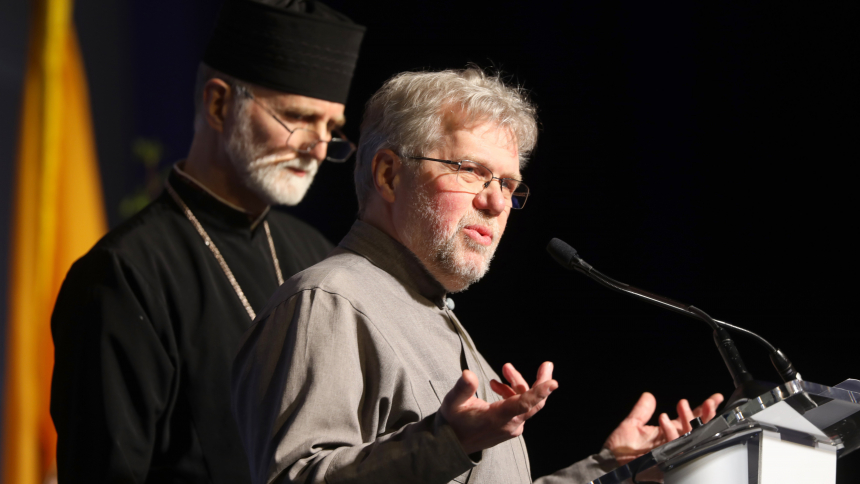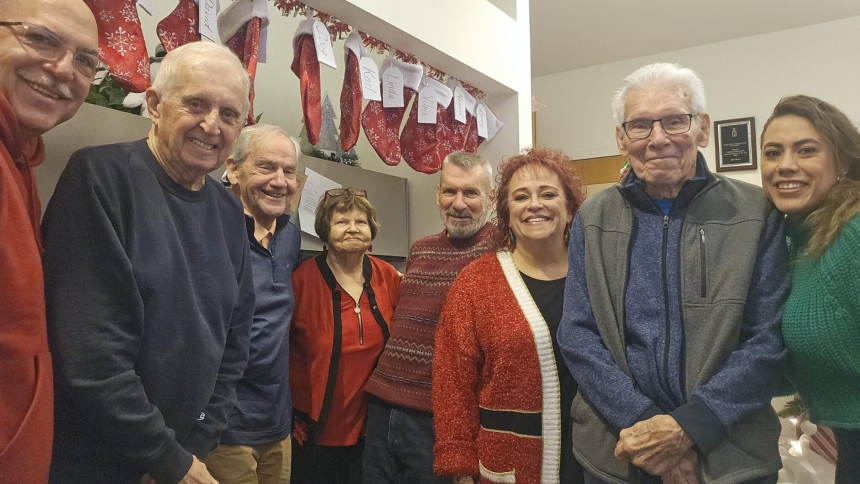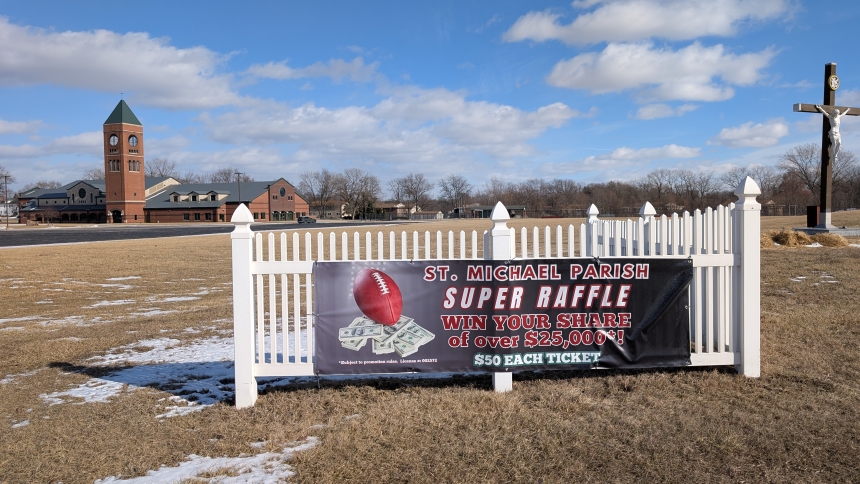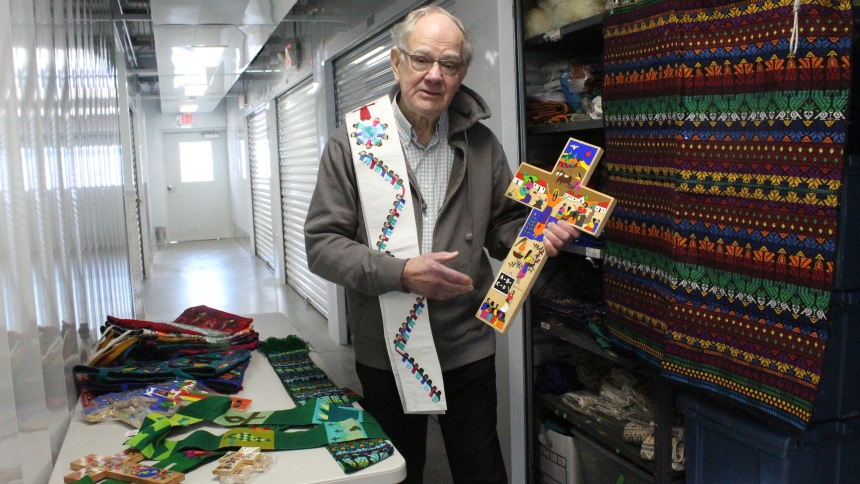
WASHINGTON (OSV News) - U.S. Catholics should urge their lawmakers to continue to help the people of Ukraine fend off Russia's invasion of their country, Metropolitan Archbishop Borys Gudziak of the Ukrainian Catholic Archeparchy of Philadelphia told attendees of the 18th annual National Catholic Prayer Breakfast March 14.
"Every time there is Russian occupation in Ukraine, the Catholic Church is strangled," Archbishop Gudziak said, citing prior conflicts in the 19th and 20th centuries.
The annual breakfast was launched in 2004 in response to St. John Paul II's call for a "new evangelization" and has been held annually with the exception of a virtual event during the COVID-19 pandemic, organizers said. It draws religious leaders, elected officials and laypeople working in a variety of fields in the nation's capital.
In addition to Archbishop Gudziak, the 2023 event also featured O. Carter Snead, director of the de Nicola Center for Ethics and Culture, a professor of law and concurrent professor of political science at the University of Notre Dame, who called on Catholics to help build a culture of life and love post-Roe.
Archbishop Gudziak has received recognition for his advocacy for the people of Ukraine during the war and for his humanitarian efforts in the country. He told attendees of the breakfast that they should talk to politicians and tell them we should continue helping, we need to be there."
Not only are Ukraine's young people giving their lives, Archbishop Gudziak said, "they're stopping tyranny."
"In the 21st century -- when everything is seemingly up for grabs, when we've deconstructed almost everything, when truth is transactional in media, politics, diplomacy and popular culture, conditioned by a post-truth anti-ethic -- Ukrainians have been saying no, not so fast," Archbishop Gudziak said. "There's good and there's evil. There's truth and there's lies. And they are doing it at the risk of their own lives, consciously, deliberately, freely looking into the face of the risk."
While the Biden administration has committed more than $31.7 billion in security assistance for Ukraine since the start of Russia's 2022 invasion, there has been bipartisan support for these efforts.
However, some Republicans, especially some House lawmakers and potential 2024 presidential candidates, have balked at this funding.
Florida Gov. Ron DeSantis, a Catholic who is expected to challenge former U.S. President Donald Trump for the Republican presidential nomination, gave a statement to Fox News host Tucker Carlson, which the host read aloud on "Tucker Carlson Tonight" March 13 in which DeSantis said, "While the U.S. has many vital national interests -- securing our borders, addressing the crisis of readiness with our military, achieving energy security and independence, and checking the economic, cultural and military power of the Chinese Communist Party -- becoming further entangled in a territorial dispute between Ukraine and Russia is not one of them."
But Archbishop Gudziak argued March 14 at the National Catholic Prayer Breakfast that U.S. support of Ukraine's efforts is not only moral, but practical.
"The Russian invasion has affected each of your pockets and the pockets of every single person on earth," Archbishop Gudziak said. "And Ukrainians are resisting that which is affecting your economy. Our economy."
Also at the March 14 event, Snead noted that it is the first National Catholic Prayer Breakfast since the U.S. Supreme Court's Dobbs v. Jackson Women's Health Organization decision in June. The decision overturned prior rulings by the high court, including the 1973 Roe v. Wade decision, that previously found abortion access to be a constitutional right.
Providing an overview of the legal background of Roe and its downfall, Snead explained Catholics now have a crucial role in promoting the dignity of human life through active support to mothers and children.
"The context in which the question of abortion arises is not a conflict of isolated strangers," Snead said. "It is a crisis involving a mother and her child. And any decent society, any decent person, if you hear that there's a crisis involving a mother and her child, you don't ask, 'Who has the right to the body?' You stop, you say, 'Let's go help. Let's rush to the aid of that mother and that child.'"
"So our imperative is to come to the aid of those in need, before and after the child is born," he said, arguing that the role of the law should be to facilitate those efforts.
"And when help, support, and protection are not forthcoming, (we must) step in and provide it directly," he said. "The success or failure of the law, our success or failure, will be understood through this lens."
Bishop Andrew H. Cozzens of Crookston, Minnesota, the chair of the U.S. Conference of Catholic Bishops' Committee on Evangelization and Catechesis, also spoke at the event to tout the upcoming 2024 National Eucharistic Congress in Indianapolis.
Bishop Cozzens said the congress will be the "high point" of the U.S. church's ongoing Eucharistic Revival.
"Brothers and sisters, I invite you to be part of this revival and I hope to see you in Indianapolis," he said.



